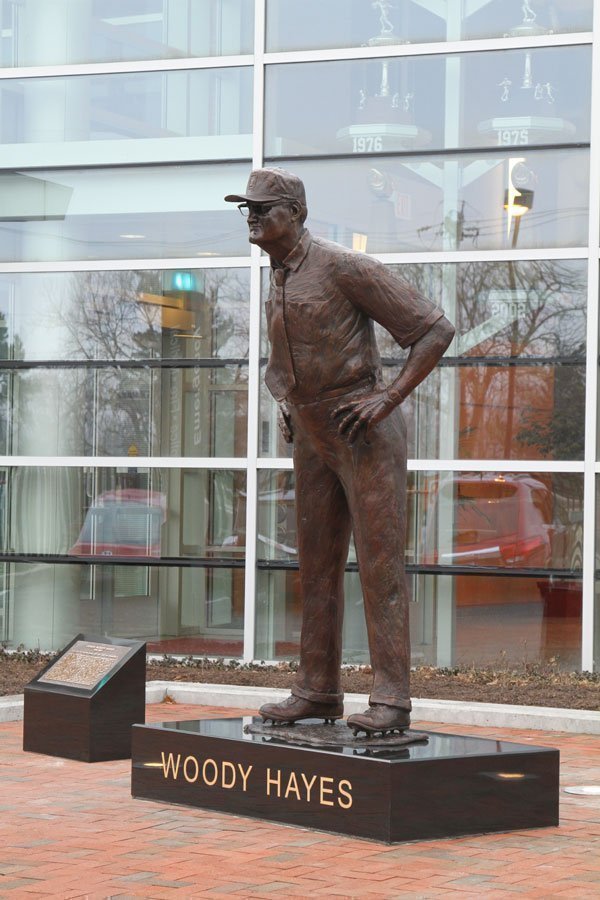
Woody Hayes approached coaching Ohio State football with the precision and intensity of a military general. This mindset came naturally to him.
The stern face of Hayes, immortalized in a statue outside the Ohio State University practice facility, reflects his deep experiences and knowledge. Before becoming a legendary coach, he was a young high school football coach when World War II began.

In his mid-20s, Hayes left Ohio and joined the United States Navy in July 1941. He rose to the rank of Lieutenant Commander, leading the PC 125 during the Palau Islands invasion and the USS Rinehart in both Atlantic and Pacific operations.
Anne Hayes, Woody’s wife, once spoke about his passion for the Navy and military history. “People talk about Woody’s devotion to football. He was just as dedicated to the Navy. We had only been married five days when he requested sea duty.”
After the war, Hayes returned home and resumed coaching, but he was changed. War had made him more rigid, strategic, and aggressive. Within five years, he quickly rose through the coaching ranks and took over the Ohio State program in 1951. After a rough start, Hayes led the Buckeyes to their second National Championship in 1954.
Hayes won five National Championships, 13 Big 10 Championships, four Rose Bowls, and one Orange Bowl. He ended his career with an overall record of 205-61-10 and a conference record of 152-37-7. However, his greatest achievement was the strong relationships he built with his players. He was stern but cared deeply for them, and they respected him in return.
His most famous player, two-time Heisman Trophy winner Archie Griffin, said, “What most people don’t know is all the good things the coach did without anybody knowing. For example, he would take some of us players to visit the burn unit at the Children’s Hospital. He always did things like that and didn’t want any publicity.”
Though Hayes was a tough man, he also had a kind heart. Ohio State fans are grateful he returned from WWII to become the beloved figure he is today. However, he was one of the lucky ones. 416,800 Americans died during WWII, leaving many families without their loved ones.
As we enjoy Memorial Day, we should remember, as Woody would have reminded us, to honor those who sacrificed their lives for our freedom. This day is dedicated to reflecting on their great sacrifice. Freedom isn’t free; it has been paid for by the blood and lives of many brave Americans.











